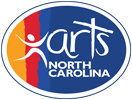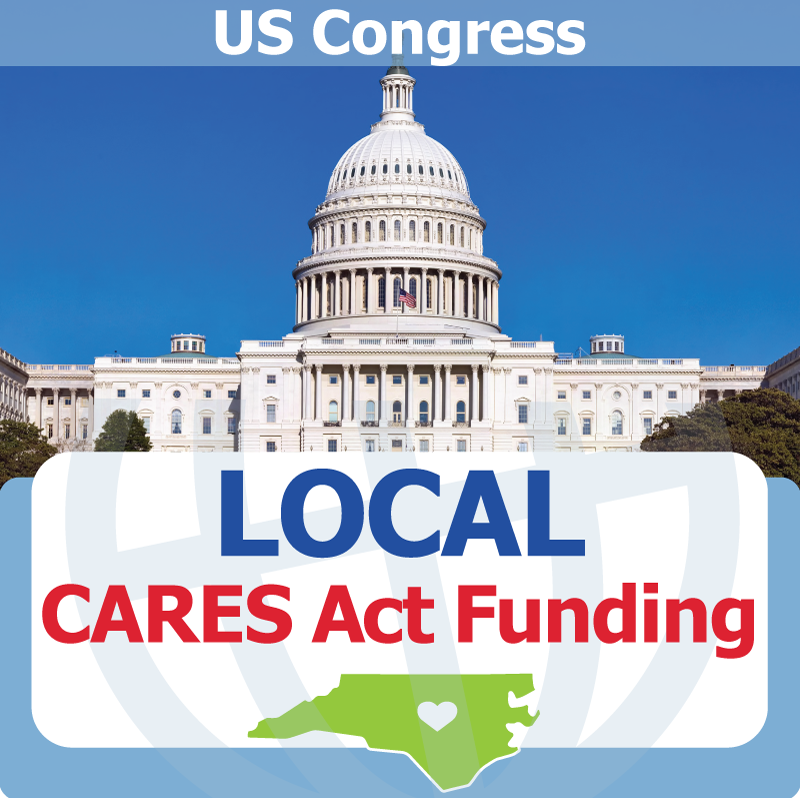Local CARES Act Arts Relief: $2M in Charlotte/Mecklenburg, $1M in Wake County & $500K in Guilford County

On August 5th the Guilford County Commission approved $500,000 for COVID-19 Relief Grants for arts nonprofits in that county, which was allocated from the Coronavirus Relief Fund (CRF) that was created by the CARES Act to fund state and local governments effort to address the impact and mitigation of the pandemic. With support from Arts NC, this effort was led by Guilford County Commissioner and nationally recognized arts champion Kay Cashion as well as ArtsGreensboro, who will partner with High Point Arts Council to receive and review the grant applications and make funding recommendations to the County. Guilford County is the first local government to create such a program in North Carolina and has also agreed to consider another $500,000 allocation in the future for a second round of relief grants to nonprofit arts organizations. ArtsGreensboro, led by President and CEO Laura Way, also supported Guilford County adjusting the requirements for COVID-19 small business relief grants, so that now self-employed artists (1099, LLC, etc.) will be eligible for $10,000 grants as well.
On Monday, August 10th, the Charlotte City Council unanimously approved $1 million in COVID-19 crisis funding for the arts & cultural community and a local foundation has pledged to match with an additional $1 million. This $2 million fund will be administered to Charlotte cultural organizations and creative individuals impacted by the COVID-19 pandemic. The City allocation also utilized CARES Act Local Coronavirus Relief Fund (CRF) resources.
On Tuesday, September 15th, the Mecklenburg County Commission voted unanimously to allocate $1 million to arts and culture organizations as well as creative individuals impacted by the pandemic from the County’s Coronavirus Relief Fund. Arts NC was proud to work with the Arts & Science Council of Charlotte and Mecklenburg County on these initiatives and grateful that these city and county governments made this crucial investment totaling $2 million in public funding from the CARES Act to meet the needs of the cultural community that serves that region of North Carolina.
On Monday, September 21st, Wake County Commissioners unanimously passed a $1 million allocation for arts organizations from their CARES Act enabled Coronavirus Relief Fund. United Arts Council of Raleigh and Wake County will accept applications and distribute the funding to eligible Wake County arts organizations that have sustained losses and expenses as a result of the COVID-19 pandemic. Arts NC partnered with United Arts President, Charles Phaneuf over the last several months on this initiative to access relief funding for the arts. The total CARES Act relief funding allocated to nonprofit arts organizations by state and local government in North Carolina is now $16.5 million.
But this is not just good news for these counties. Every county in North Carolina received CRF allocations that can be used to fund nonprofit arts organizations.
Local CARES Act Funding Statewide
There is over $750 million of federal funding from the CARES Act that has been allocated to local governments across North Carolina, and one of the expenses that these dollars can be spent on is business interruption grants, which can include nonprofit arts organizations. Local governments have to abide by federal restrictions, but they also have a great deal of say in how these dollars are spent. Now is the time to have this conversation with your local government officials. Arts NC wants to provide you with the tools you need to have that conversation. The first things you need to know:
- Every County in North Carolina, and many cities, will receive some of this money.
- It can’t be used for expenses that were already in a government’s budget, even if that government is struggling from revenue loss as result of the pandemic.
- It must be used for expenses that are incurred due to COVID-19 (such as additional personnel, overtime, or equipment) and CAN be used for business interruption grants.
- Local government can choose to support nonprofit organization according to US Treasury Guidance, or even allocate separate funds specifically for the arts.
- In order to access these dollars, the arts community has to make the case to local officials NOW. Local governments have the control, YOU HAVE TO ADVOCATE FOR THE FUNDING.
The Coronavirus Aid, Relief, and Economic Security (CARES) Act provided billions of dollars to both State and local governments. The State of North Carolina received approximately $3.5 billion, some of which was intended to be distributed to local governments. However, counties with populations over 500,000 could apply to receive funding directly. There were three NC counties that received direct funding; Guilford ($93.7 million), Mecklenburg ($193.8 million), and Wake ($194 million). Arts NC has been working directly as a resource with arts leaders in these counties to assist in accessing these funds.
The remaining 97 county governments have been allocated a total of $300 million through two pieces of legislation, one in early May ($150 million) and one in late June (another $150 million). Each of those counties receives a base of $250,000 with an additional allocation based on population that must be spent by December 30, 2020, or the unspent portion is returned to the State. Additionally, counties must appropriate 25% of their total allocation to their municipalities, who must submit spending plans by September 1st or return the unspent dollars to the County. For context, of the 97 counties funded through the State, Forsyth County will receive the most (roughly $14 million), of which about $3.5 million will be allocated to cities and towns.
The money has to be used for expenses directly related to COVID-19, which can include overtime, additional personnel, personal protective equipment (PPE), or other costs associated with the pandemic. This can also include loans or grants to businesses, nonprofits, or even individuals who were negatively impacted financially as a result of COVID-19 pandemic. According to the US Treasury Guidance, local governments have a great deal of flexibility as to whom they offer these grants, what the request/application process would be to determine if there is need, and what, if any, reporting is required. Additionally, stay-at-home orders do not need to be in place for lost revenue to be included as a qualified loss, as long as the business closure was undertaken to minimize the spread of COVID-19.
The US Treasury Guidance begins with how governments can and cannot spend these funds:
The CARES Act provides that payments from the Fund may only be used to cover costs that—
1. are necessary expenditures incurred due to the public health emergency with respect to the Coronavirus Disease 2019 (COVID–19);
2. were not accounted for in the budget most recently approved as of March 27, 2020 (the date of enactment of the CARES Act) for the State or government; and
3. were incurred during the period that begins on March 1, 2020, and ends on December 30, 2020.
While this guidance makes clear that governments cannot use these funds for revenue replacement, it also goes on to be clear that governments may use CRF funds to make business interruption grants to cover revenue losses of businesses (including nonprofits). The first instance is on page one:
The requirement that expenditures be incurred “due to” the public health emergency means that expenditures must be used for actions taken to respond to the public health emergency. These may include expenditures incurred to allow the State, territorial, local, or Tribal government to respond directly to the emergency, such as by addressing medical or public health needs, as well as expenditures incurred to respond to second-order effects of the emergency, such as by providing economic support to those suffering from employment or business interruptions due to COVID-19-related business closures.
Also, under examples later in the Guidance, Treasury specifically lists:
5. Expenses associated with the provision of economic support in connection with the COVID-19 public health emergency, such as expenditures related to the provision of grants to small businesses to reimburse the costs of business interruption caused by required closures.
Nationally, we have seen these CRF funds used specifically for business interruption grant programs for arts nonprofits in Phoenix AZ, Sacramento and Orange County CA, and San Antonio TX. Unfortunately, it seems that some towns, cities, and counties are limiting how granted dollars are spent by applying the same restrictions that local government has. Local governments can’t use these funds to replace their own lost revenue, but they CAN grant money to businesses and organizations to replace their lost revenue.
Many counties may not have developed plans yet for this new funding, and cities and towns are less likely to have begun spending these new allocations, meaning now is the time to reach out to both city and county officials and have a conversation. To get started you can answer a few questions:
- Does your county or city plan to use CARES Act funding for Business Interruption Grants?
– If YES- See next question, if NO- Advocate for change. - Are nonprofits eligible or is there a separate grants program for the arts?
– If YES- Apply or ask for funding, if NO- Advocate for change. - Do you have a Local Arts Council that can answer these questions and coordinate advocacy?
– If YES- Communicate and Coordinate, if NO- You are it! Advocate for change!
Arts NC has produced our NEW Remote Connections Toolkit, to help you speak to your elected officials remote and to have conversations about the value and need to support the arts during the pandemic. Your request to your local government officials should include:
- The economic, educational, and civic impact of the arts in your community.
- The impact the COVID-19 pandemic has had on the arts sector.
- Citing the US Treasury Guidance that CRF allocations can be used for business interruption grants.
- Citing examples of CRF arts funding such as Charlotte, Guilford County, and others across the country.
- Your request for funding and explanation of how it will be used or distributed.
Talk to you City Council and/or County Commission TODAY and ask that your town/city/county use a portion of their Local Coronavirus Relief Fund CARES Act allocation to provide Business Interruption Grants for arts organizations as soon as possible.
It is possible that your local government will have other needs for this funding and you will not be able to access these resources. It is definite that you will not be able to access the funding if you do not ask for it. Advocate for change.

